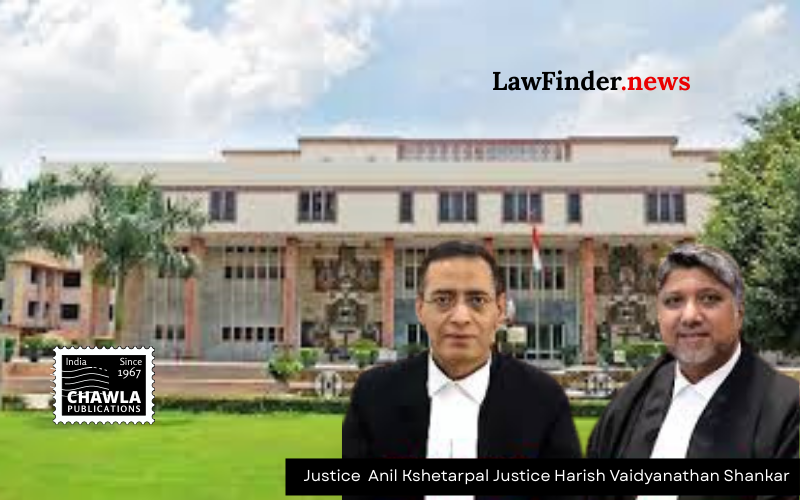Court dismisses appeal challenging marriage validity based on non-performance of customary rites under the Hindu Marriage Act, 1955.
In a significant ruling, the Delhi High Court has dismissed an appeal challenging the validity of a marriage certificate issued by the Arya Samaj Mandir and the Office of District Magistrate, Shahdara District, Delhi. The appeal was filed by Vivek Nagrath and Divya Goglani, who sought to declare their marriage dated January 30, 2024, null and void due to alleged non-fulfillment of statutory rites under Section 7 of the Hindu Marriage Act, 1955.
The Division Bench comprising Justice Anil Kshetarpal and Justice Harish Vaidyanathan upheld the judgment of the Family Court, which had earlier dismissed the joint petition filed by the parties. The appellants contended that their marriage was never solemnized according to Hindu customary rites, specifically the ceremony of Saptapadi, which involves the taking of seven steps by the bride and groom before the sacred fire.
The court emphasized that Section 7 of the Hindu Marriage Act recognizes marriages solemnized in accordance with customary rites and ceremonies of either party and does not provide grounds for declaring a marriage null and void solely on the basis of non-performance of these rites. It was further noted that the appellants had voluntarily submitted affidavits and documents to obtain the marriage certificate, creating a presumption of a valid marriage under the principle of estoppel.
In its detailed judgment, the High Court clarified that Section 11 of the Hindu Marriage Act could not be invoked as the marriage was not solemnized in contravention of any essential conditions specified under Section 5 of the Act. The court also highlighted the international implications of disavowing marriage certificates, which could undermine the credibility of India's marriage registration system globally.
The ruling reiterated the sanctity of marriage as a sacrament and contract within Indian society and cautioned against the use of judicial processes to circumvent statutory provisions through ingenious legal drafting. The court firmly stated that the judgment in the case of Dolly Rani v. Manish Kumar Chanchal, which was cited by the appellants, was not applicable as it was delivered under the Supreme Court's plenary powers under Article 142 of the Constitution and does not serve as a binding precedent.
The appeal, described by the court as a product of sheer ingenuity and misadventure, was dismissed with no order as to costs.
Bottom Line:
Section 7 of the Hindu Marriage Act, 1955 does not provide grounds for declaring a marriage null and void solely on the basis that the statutory requirements of solemnisation were not fulfilled.
Statutory provision(s): Hindu Marriage Act, 1955 Sections 7, 11; Evidence Act, 1872 Section 115; Bharatiya Sakshya Adhiniyam, 2023 Section 121; Article 142 of the Constitution of India.
Vivek Nagrath v. Divya Goglani, (Delhi)(DB) : Law Finder Doc Id # 2792181




